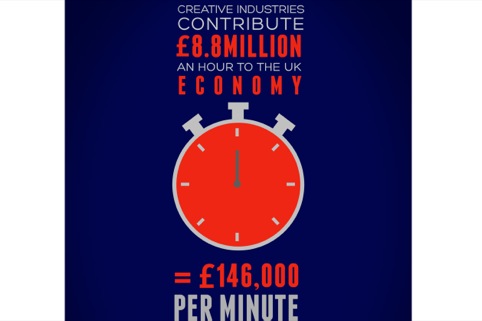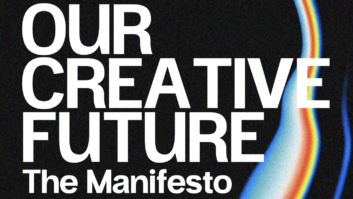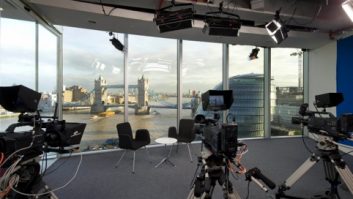
The UK’s creative industries, which include film, television and music, are now worth £76.9 billion per year to the UK economy, according to figures published this week by the Department for Culture, Media and Sport (DCMS). This contribution equates to £8.8 million per hour or £146,000 every minute.
The DCMS highlighted the next Bond film, Spectre; the adaptation of JK Rowling’s novel, The Casual Vacancy; and the next instalment of Downton Abbey among the highly-anticipated output from the UK’s creative industries. Speaking at an event at BAFTA last year, Gareth Neame of UK independent drama producer Carnival Films, commented that “Budgets ten years ago were so unrealistically low compared to now. Now shows are well-cast, with high production values, and sold around the world.” Sajid Javid, secretary of state for Culture, Media and Sport also stressed this point, and commented on the figures this week: “The UK’s creative industries are recognised as world leaders around the globe and today’s figures show that they continue to grow from strength to strength.”
The UK High-end TV Tax Relief, introduced last April, seems to have been a success. This means that for scripted TV projects with a minimum core expenditure of £1 million per broadcast hour, the TV Production Company (TPC) can claim a rebate of up to 25 per cent of qualifying UK expenditure. As a result there has been “a lot more activity and more money coming in from the US. The UK tax credit has done a lot to attract producers to the UK,” asserted Christine Corner, media and entertainment group, Grant Thornton, in the wake of the tax introduction. Scripted TV output in the UK, as in the US has grown more filmic in style, with longform storytelling, high production values, and an influx of acting talent from the big screen. The tax relief is therefore much needed: “Budgets have gone up and tax break helps and we need every bit of that money,” added Javid.
The recent statistics also reveal that the creative industries accounted for 1.71 million jobs in 2013, 5.6 per cent of total UK jobs; and a 1.4 per cent increase on 2012. However, the term ‘creative industries’ covers a broad spectrum of employment areas, including IT, design, advertising, galleries, libraries, publishing, music and the performing arts. The Financial Times reports that employment growth has been uneven, with large gains in sectors like IT, computing and software over the past three years and less striking growth in music, film and TV, among others. Employment actually fell in other areas like publishing, museums, galleries and libraries.
The DCMS report states that Gross Value Added (GVA) for 2012-13 increased by 9.9 per cent – more than three times that of the UK economy as a whole, and higher than any other industry. GVA of the creative industries was £76.9 billion in 2013 and accounted for 5.0 per cent of the UK Economy. However, software and computer services accounted for almost half of this GVA with a little more than £35 billion in 2013, a 35 per cent increase from 2008. By comparison, film, TV, radio and photography contributed £9.3 billion.
Exports from the UK creative industries have also helped contribute to a strong economy, and the value of services exported was £17.3 billion in 2012, 8.8 per cent of total UK service exports, the figures show. These announcments came in the same week that the National Endowment for the Arts and US Bureau of Economic Analysis released figures to show the creative industries contributed more than $698 billion (£460.4 billion) to the US economy in 2012, about 4.3 per cent of US goods and services. The current international strategy for the UK targets an increase in the value of creative exports to £31 billion by 2020.
Nicola Mendelsohn, industry co-chair of the Creative Industries Council (CIC) and vice president for EMEA at Facebook, responded to the statistics, describing 2015 as “an exciting year with so many highlights to come. We’re well placed to continue to secure the UK’s place as a leading global hub for the creative industries for the decades to come.”
Watch the video interview with Ed Vaizey and Nicola Mendelsohn:







